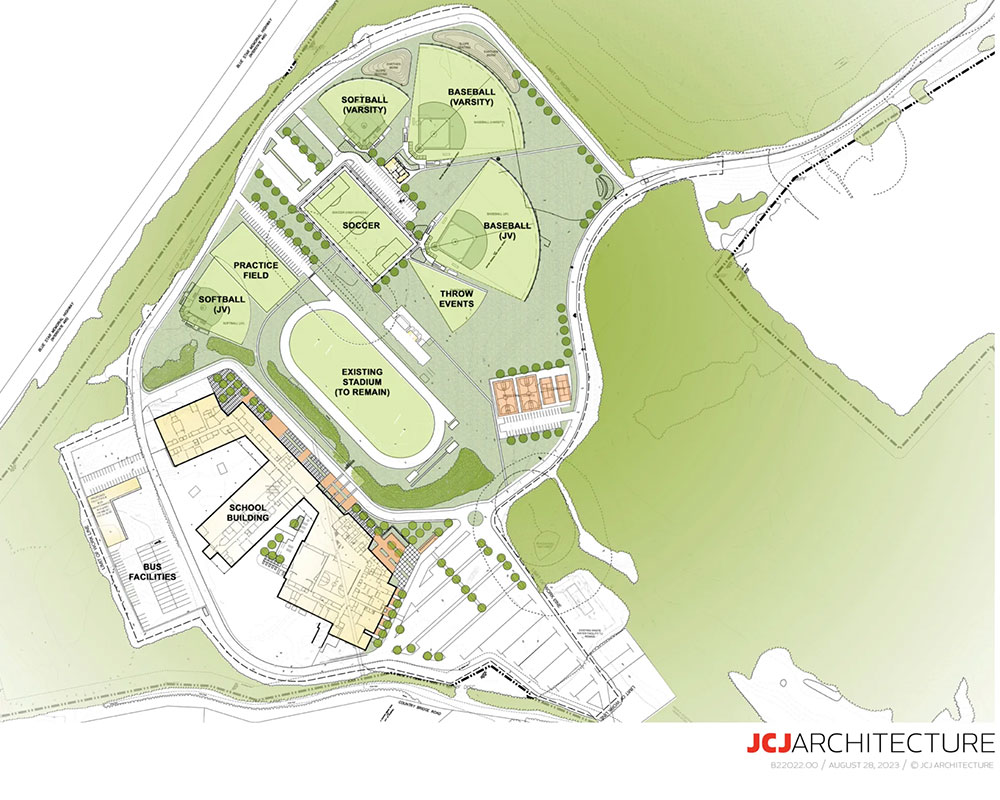
To submit election-related announcements, click on image or email [email protected]. These are the only acceptable methods of sending campaign news.
In the public interest, WHAV today presents in two parts, a series of fact checks to shed light on certain myths and little-known facts in advance of next week’s vote on the future of Whittier Regional Vocational Technical High School.
Part 2 of 2
There’s a saying that turnabout is fair play.
For or against building an estimated $444.6 million replacement Whittier Tech, some leaders appear unaware of the district’s history and a lawsuit 45-years ago that affirmed the formulas.
When the agreement among the 11 communities was negotiated in 1967, Whittier had one formula for capital spending, like a new building, and another for paying annual operating costs. Haverhill has paid 50-70% of the annual costs over the past 50 years, but with only 15% of the representation.

Former Haverhill Mayor Lewis C. Burton. (Courtesy photograph.)
Haverhill, under Mayor Lewis C. Burton, filed a federal civil rights suit against the Whittier district, arguing essentially it suffers taxation without representation with its big annual bill and small representation. That may have been a good time for all of the communities to open up the 1967 agreement that created the school, hashed out Haverhill’s complaint and weighed it against their own worries about future capital costs.
There was, however, no room for compromise then. The towns rubbed Haverhill’s nose in the agreement and the city lost in a 1978 decision. There is a mechanism for communities to withdraw from the district but, as the three-judge U.S. Circuit Court panel warned, any that do “shall remain liable to the district for its share of the indebtedness of the district outstanding at the time of such withdrawal, and for interest thereon.”
Haverhill still has only 15% of the vote on the Whittier School Committee and 70% of the students, but thanks to the formula the other communities fought to keep, the city is responsible for only 41.6% of the net cost of building a new school
Opponents have organized a “Reimagine Whittier” Committee. In a video, the group says the Whittier Tech School Committee chose a costly plan and a builder with a “non-competitive bidding process.”
Contrary to Reimagine Whittier’s allegations, project construction manager Consigli was selected from six proposals submitted where one bidder dropped out and five went on to be interviewed in a process governed by state law. If voters approve moving forward, Consigli’s Vice President of Project Services Todd McCabe told WHAV, the design of the school will be completed and more bids sought.
“All of the trade bids and non-trade bids will be bid competitively and those numbers will make up 90% of the total project cost,” he said.
Opponents have tried a guilt-by-association smear against Haverhill’s new mayor because a contractor who worked on her campaign now works on the “Yes for Whittier” campaign. Yet, if they chose to hear or read WHAV News, they would know Mayor Melinda E. Barrett herself raised their concerns during a December meeting of the Haverhill City Council.
“Especially, if you look at the areas not covered, or not reimbursed by the MSBA, the superintendent’s office can be much smaller,” Barrett said. “Any non-student areas that the MSBA does not cover, you have to take a real hard look at those areas and see where you can condense, consolidate, trim it down,” she said.
Project Manager David Saindon of LeftField says such a review is included in the process if voters give their consent next week.
“The refinement of the project will still continue and we will continue to look at ways to reduce the cost leading up to the bidding process with all of the subcontractors. Even if, hypothetically, bids come in, we do not have to accept the bids. We can put a pause. We can rebid. We could also provide alternates within the bid,” he explained.
The proposal before voters next Tuesday is to pay for what is now estimated to be an estimated $444.6 million replacement school with a cost $267.5 million to be paid by the 11 member communities after grants and reimbursement by the state.
Voters in all 11 communities go to the polls next Tuesday. Polls will be open 11 a.m. to 7 p.m. A majority vote decides whether a replacement school moves forward. If voters reject the plan, Whittier Tech officials say they must make plans to renovate. They project required building code upgrades to total $316.8 million; wastewater treatment plant, $12.8 million; sprinkler system, $11.3 million; and new access road, $9.4 million. Opponents argue it simply means going back to the drawing board.
